 1998 BMW 7 Series (E38, facelift 1998) Dimensions, Size & Specs
1998 BMW 7 Series (E38, facelift 1998) Dimensions, Size & SpecsMeasurements of the 1998 BMW 7 Series, engineered for optimal performance and comfort
| Dimensions | |
|---|---|
| Length: | 4984 mm196.2 in16.4 ft |
| Width: | 1862 mm73.3 in6.1 ft |
| Height: | 1425-1435 mm56.1-56.5 in4.7-4.7 ft |
| Trunk Capacity: | 500 liter17.7 cu ft |
| Weight Specifications | |
| Curb Weight: | 1710-1960 kg3770-4321 lbs |
| Maximal permitted Weight: | 2245-2495 kg4949-5501 lbs |
| Tire Specifications | |
| Rims Size: |
|
| Tire Sizes: |
|
The BMW 7 Series E38 facelift, produced from 1998 to 2001, represents a refined iteration of BMW's flagship luxury sedan offering a blend of elegant design and robust engineering. This generation of the 7 Series maintains an imposing road presence with a length of 4984 mm (196.1 inches), a width of 1862 mm (73.3 inches), and a height ranging between 1425 mm to 1435 mm (56.1 to 56.5 inches). These dimensions provide ample interior space for both driver and passengers, emphasizing comfort and luxury typical of BMW's top-tier sedans.
The curb weight of the facelifted E38 varies between 1710 kg and 1960 kg (3,770 to 4,324 lbs), depending on the specific configuration and installed equipment. Its maximum permissible weight ranges from 2245 kg to 2495 kg (4,951 to 5,498 lbs), showcasing the solid build quality and advanced safety features integrated into the vehicle. This model is equipped with 16-inch rims, paired with tire sizes ranging from 215/65 R16 to 235/60 R16 and the performance variant 235/60 R16 W, balancing both ride comfort and handling precision.
A significant practical feature of the BMW 7 Series E38 facelift is its generous luggage capacity of 500 liters (17.7 cubic feet), making it suitable for long journeys with ample cargo space. This combination of spaciousness, luxury, and performance continues BMW's tradition of producing executive sedans that meet the needs of discerning drivers looking for both style and substance.
Discover the standout features that make the 1998 BMW 7 Series a leader in its class
Have a question? Please check our knowledgebase first.
The BMW 7 Series (E38 facelift 1998) measures 4984 mm (196.3 inches) in length, making it a full-sized luxury sedan with a commanding road presence. Its width is 1862 mm (73.3 inches), providing a spacious cabin for passengers while maintaining manageable proportions for driving and parking. The height ranges between 1425 mm and 1435 mm (56.1 to 56.5 inches), offering a low and sleek profile that enhances aerodynamics and the car’s sporty luxury appeal. These dimensions contribute both to the vehicle's comfortable interior space and its elegant external stance.
The curb weight of the BMW 7 Series (E38 facelift 1998) ranges from 1710 kg to 1960 kg (approximately 3,770 to 4,324 pounds), depending on specific configurations such as engine, optional equipment, and trim levels. The maximum permissible weight is between 2245 kg and 2495 kg (approximately 4,952 to 5,499 pounds). This weight range reflects the car’s robust construction aimed at delivering both luxury comfort and solid road handling. The relatively heavy weight also supports sound insulation and structural rigidity, contributing to the car's refined driving experience.
The BMW 7 Series (E38 facelift 1998) features a luggage capacity of 500 liters (about 17.7 cubic feet). This trunk space is ample for a luxury sedan, providing plenty of room for suitcases, groceries, or other cargo, making it practical for both daily errands and longer trips. The large, wide-opening trunk facilitates easy loading and unloading, while the spacious interior design ensures that passengers don't have to sacrifice comfort or space when carrying luggage.
The BMW 7 Series (E38 facelift 1998) is equipped with 16-inch rims fitted with several tire size options to suit different driving needs. The available tire sizes are 215/65 R16, 235/60 R16, and 235/60 R16 W. These tires offer a balance of comfort, handling, and road grip appropriate for a luxury sedan of this size. The variety in tire sizes also allows owners to choose tires tailored to their preferred driving dynamics or weather conditions, with wider tires providing improved traction.
Fitting the BMW 7 Series (E38 facelift 1998) into a standard residential garage is generally feasible as most standard garages in Europe and North America measure approximately 2.4 to 2.7 meters (7.9 to 8.9 feet) in width and around 5.5 to 6 meters (18 to 20 feet) in length. With a width of 1862 mm (73.3 inches) and length of 4984 mm (196.3 inches), this BMW, although long, is slightly under 5 meters wide and just under 5 meters long, fitting comfortably if the garage space isn’t too narrow or short. However, some very tight or non-standard garages might require careful maneuvering. The car’s height also poses no issues given standard garage heights are considerably taller than 1435 mm (56.5 inches).
The BMW 7 Series E38 facelift’s height range of 1425 to 1435 mm (56.1 to 56.5 inches) allows for a low-slung exterior design, promoting sporty aesthetics and better aerodynamics, while interior packaging ensures sufficient headroom for both front and rear passengers. This thoughtful balance creates a spacious but driver-focused cockpit typical of BMW’s luxury sedans. The ample headroom complements wide seating and generous legroom, delivering comfort for passengers during extended drives without feeling cramped or confined.
The facelifted 1998 BMW 7 Series (E38) largely retained the overall dimensions of the pre-facelift E38 generation, emphasizing minor styling and feature updates rather than drastic size changes. Length remained around 4984 mm (196.3 inches), and width was approximately 1862 mm (73.3 inches). Weight fluctuations between 1710 and 1960 kg (3770 to 4324 lbs) similarly reflected variations in equipment and engines rather than structural alterations. The facelift focused on enhancing luxury features, technology, and styling refinement rather than resizing, maintaining the classic proportions and driving dynamics that defined the original E38’s reputation.
When compared to contemporaries like the Mercedes-Benz S-Class W220 (introduced in 1998) or the Audi A8 D2, the BMW 7 Series E38 facelift holds its ground as a similarly sized full-size luxury sedan. The 4984 mm length and 1862 mm width place it in the upper range of full-size sedans, competitive with the S-Class which measures roughly 4990 mm long and 1870 mm wide, and the Audi A8 which is slightly shorter at around 4967 mm in length. The BMW is known for its dynamic driving characteristics and driver-focused design, while rivals emphasize comfort or advanced technological innovation. Each car offers competitive luggage space and interior volumes for its segment, making the E38 a well-rounded competitor.
The 1998 BMW 7 Series (E38 facelift) introduced subtle but meaningful updates including revised front and rear bumpers, new grille design, updated headlights, and enhanced luxury features inside the cabin. Performance-wise, the E38 was renowned for its smooth ride, precise handling, and a range of powerful engines including inline-Six and V8 options with advanced technologies for the era such as VANOS variable valve timing. These improvements reinforced the 7 Series' reputation as a driver-oriented luxury flagship that combines elegant styling with technological sophistication and a refined driving experience.
Despite its full-size sedan proportions at 4984 mm in length and a curb weight ranging from 1710 to 1960 kg, the BMW 7 Series (E38 facelift 1998) offers remarkable agility for its class, thanks to precise steering and a well-tuned suspension system. In urban environments, the relatively moderate width of 1862 mm aids maneuverability and ease of parking alongside its responsive handling. On highways, the car excels in stability and comfort, providing a smooth ride at high speeds with ample power from its engine options. The E38 balances the luxury of spaciousness with surprisingly nimble dynamics typical of BMW engineering.
Discover similar sized cars.
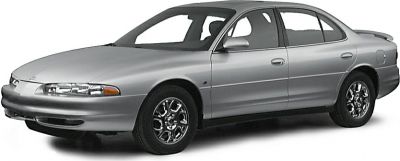
| Production: | 1998-2002 |
|---|---|
| Model Year: | 1998 |
| Length: | 4975 mm195.9 in |
| Width: | 1870 mm73.6 in |
| Height: | 1440 mm56.7 in |

| Production: | 2020-present |
|---|---|
| Model Year: | 2020 |
| Length: | 4978 mm196.0 in |
| Width: | 2126 mm83.7 in |
| Height: | 1466 mm57.7 in |
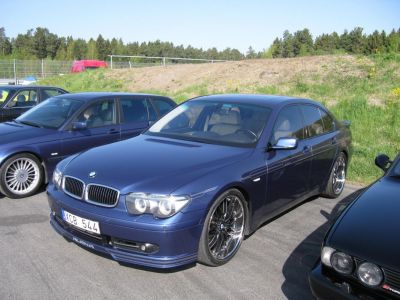
| Production: | 2005-2008 |
|---|---|
| Model Year: | 2005 |
| Length: | 5030-5170 mm198.0-203.5 in |
| Width: | 1900 mm74.8 in |
| Height: | 1480 mm58.3 in |

| Production: | 2020-present |
|---|---|
| Model Year: | 2020 |
| Length: | 4978 mm196.0 in |
| Width: | 2126 mm83.7 in |
| Height: | 1466 mm57.7 in |
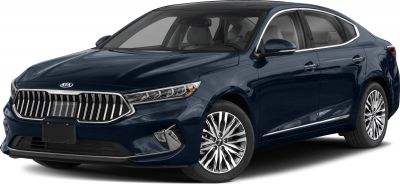
| Production: | 2019-2021 |
|---|---|
| Model Year: | 2019 |
| Length: | 4996 mm196.7 in |
| Width: | 1869 mm73.6 in |
| Height: | 1471 mm57.9 in |

| Production: | 2019-present |
|---|---|
| Model Year: | 2019 |
| Length: | 4995 mm196.7 in |
| Width: | 1870 mm73.6 in |
| Height: | 1470 mm57.9 in |
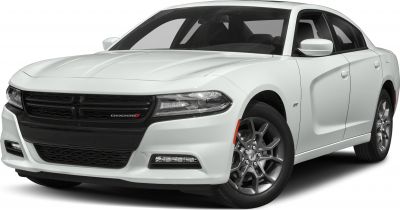
| Production: | 2015-2019 |
|---|---|
| Model Year: | 2015 |
| Length: | 5040-5100 mm198.4-200.8 in |
| Width: | 1905 mm75.0 in |
| Height: | 1480 mm58.3 in |
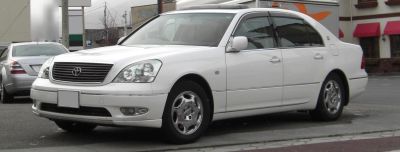
| Production: | 2000-2003 |
|---|---|
| Model Year: | 2001 |
| Length: | 4995 mm196.7 in |
| Width: | 1830 mm72.0 in |
| Height: | 1470 mm57.9 in |
